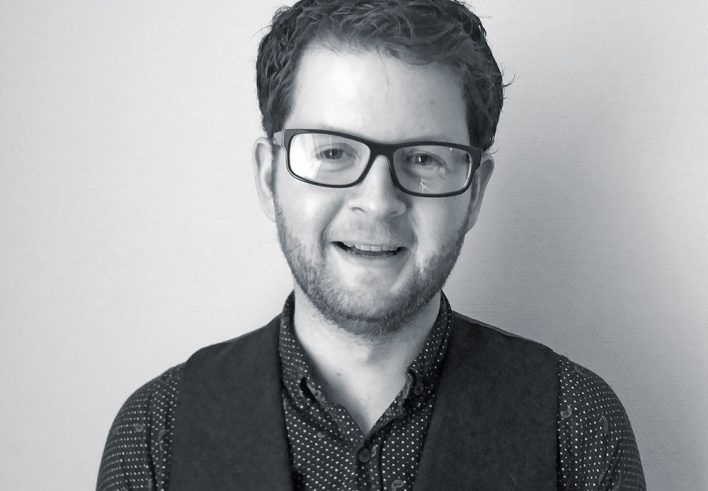Advice
An interview with Patrick Fitzgerald
By: Cynthia Ebere-Anaba
Updated: 15 February 2016

This month, we’ll be talking with psychotherapist Patrick Fitzgerald about mental health, rural isolation and the problems facing modern Ireland.
Tell us about yourself and your background
My background is very diverse. From a young age, my father and uncle were farmers. I worked on the farm every summer. After I finished school, I went into computers. Following that, I did marketing, and then I did civil engineering. I began volunteering with the Samaritans and Concern before I started doing psychotherapy and I absolutely loved it. I realised that I loved helping people, and I needed to try it. Now I’m four years in and I love it.
What would be your main area of interest and experience in the caring profession so far?
So far, I’m very interested in suicide. I’m fascinated by what’s going on in someone’s brain in that situation. I am also very interested in rural isolation. With my farming background, I’m in the farming community all the time, meeting everyone. This led to my passion for helping those experiencing rural isolation.
What is rural isolation and how can it be damaging to someone’s mental health?
Rural isolation is the loneliness we see in rural communities as we move forward in modern Ireland. Everything is getting bigger and moving into cities – rural communities are losing shops and bars. The people in rural communities have to travel to the city. This leads to the loneliness and isolation that people are feeling. This is damaging to mental health as the rural communities are not getting the same attraction and people have to travel to do what they would usually do.
Would rural isolation be something you would see as gender-specific?
From my experience, more males seem to be affected. I believe women are better at talking to each other and expressing emotions. Men in the farming community, in my experience, tend to brush everything under the carpet.
What would you see as the main barriers for people in the rural community in accessing support?
The three biggest barriers are the stigma around mental health, the knowledge around mental health and the lack of services available to rural communities.
How can these problems be tackled?
We need more programmes in place. I have done work on a programme for the EU and Ireland’s rural isolation plan for 2030. It’s about funding different organisations that are going to help with the issue of rural isolation. The other thing that will help to tackle these problems is online services – which MyMind has. It’s important to roll that out for those who are unable to access a mental health centre. It is important to make a good internet infrastructure as well, as the internet may not be accessible in some areas.
What can be done in the community to help those who might be experiencing rural isolation?
People in the community should look after one another. Be aware of your neighbour or your shopkeeper. It’s important for people to check on their neighbours, even to just say hi. Just check-in to see how they are.
What kind of response have you gotten from communities at your talks about rural isolation?
The response I get is amazing. So many people show up and ask me about services that are available. Rural isolation is a massive area that needs to be looked at.
Patrick and MyMind Limerick manager Michelle will be talking to farmers about their mental health on Tuesday, 16th February at Kilmihill Community Hall in Co. Clare.
MENTAL HEALTH PROFESSIONALS WORKING WITH Other ISSUES:
Approach: Solution-Focused Brief Therapy , Systemic & Family Therapy , Mindfulness , Psychodynamic Therapy , Person-Centred Therapy , Humanistic & Integrative Psychotherapy , Gestalt Therapy , Psychoanalytic Psychotherapy , Cognitive Behavioural Therapy (CBT)
Works with: Individual Session
Specialities: Anger , Anxiety , Bereavement / Loss , Communication Issues , Depression , LGBT , Obsessive Compulsive Disorder , Relationship issues , Self Care , Self-Esteem , Stress , Trauma , Work Issues, Work/Life balance , Other
Next avaialble appointment: 18:00 06 May 2024
Approach: Humanistic & Integrative Psychotherapy , Mindfulness , Person-Centred Therapy , Psychodynamic Therapy , Creative Art Therapy
Works with: Children & Adolescents , Individual Session
Specialities: Anger , Anxiety , Bereavement / Loss , Depression , Domestic Violence / Abuse , Eating Disorder / Body Image , Isolation / Loneliness , Obsessive Compulsive Disorder , Personal Development , Personality disorder , Relationship issues , Self Care , Self-Esteem , Sexuality (LGBTQIA+) , Stress , Suicidal Ideation / Self Harm , Trauma , Work Issues, Work/Life balance , Other
Next avaialble appointment: 21:00 30 April 2024
Approach: Mindfulness , Person-Centred Therapy , Solution-Focused Brief Therapy , Other
Works with: Individual Session , Couples
Specialities: Anger , Anxiety , Bereavement / Loss , Communication Issues , Depression , Domestic Violence / Abuse , Fertility , Isolation / Loneliness , Neurodiversity , Panic , Personal Development , Relationship issues , Self Care , Self-Esteem , Stress , Suicidal Ideation / Self Harm , Trauma , Work Issues, Work/Life balance , Other
Next avaialble appointment: 10:00 29 April 2024
NEXT ARTICLE
Love and your mental wellbeing
Search
Get The Support You Need
From One Of Our Counselors
News
Isolation
Anxiety
Depression
Relationship Issues
Counselling
Personality Disorder
Addiction
Trauma
Children and Adolescent
Anger
Bereavement
Chronic Illness
Communication Issues
Eating Disorder
Post natal depression
Stress
LGBTQI+
Panic Attack
OCD
Resilience
Parental support
Category List
All Posts
News
Isolation
Anxiety
Depression
Relationship Issues
Counselling
Personality Disorder
Addiction
Trauma
Children and Adolescent
Anger
Bereavement
Chronic Illness
Communication Issues
Eating Disorder
Post natal depression
Stress
LGBTQI+
Panic Attack
OCD
Resilience
Parental support

